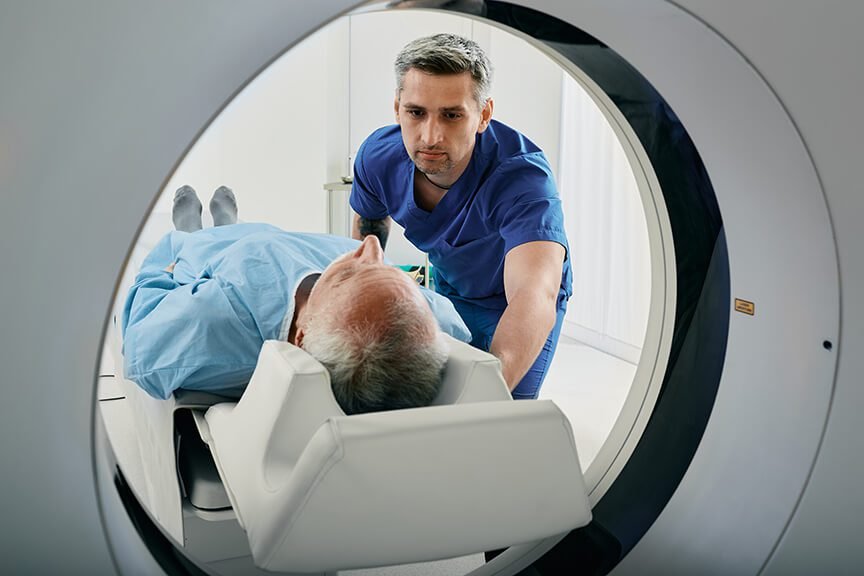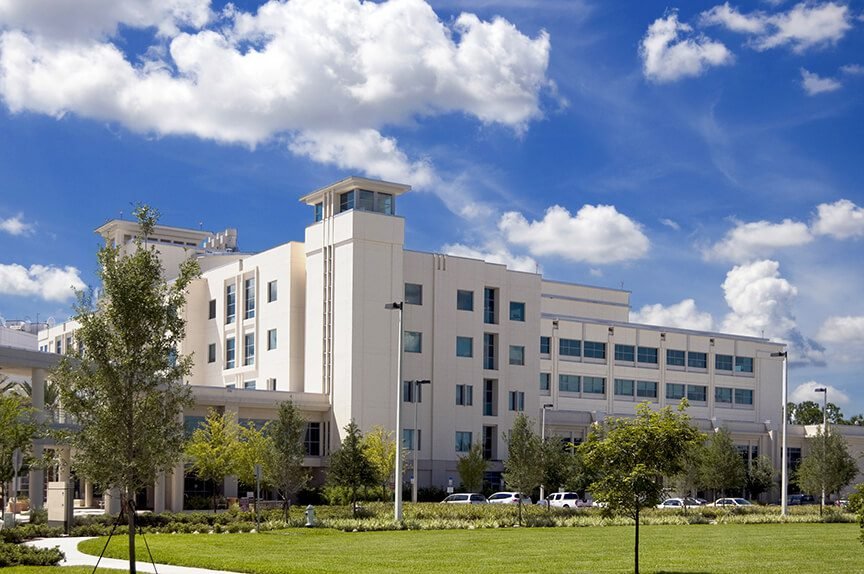Moving to a new country comes with many adjustments. One key area that immigrants need to understand is the healthcare system. In the United States, there are various types of healthcare facilities that serve different functions. As an immigrant, it is important to familiarize yourself with these facilities so you can access the right health care facility when needed.
This guide will provide an overview of the common health care facilities in the U.S. It will explain key differences, services offered, when to use them, and what to expect when you visit. With this knowledge, you can navigate the healthcare system with ease and confidence.
Hospitals
Hospitals are healthcare facilities that provide a wide range of inpatient and outpatient medical services. They offer care by specialized physicians and staff 24/7.
Services Offered:
- Emergency services – for critical injuries or illnesses that require immediate care
- Intensive care units (ICU) – for patients who need constant monitoring and specialized equipment
- Inpatient services – extended stay for surgery recovery or serious medical conditions
- Outpatient clinics – for appointments, tests, procedures not requiring admission
- Urgent care – for serious but non-life threatening conditions that need quick attention
When to Go:
- Medical emergencies – head injuries, severe cuts, heart attack symptoms
- Giving birth
- Scheduled surgery – knee replacement, open heart surgery, transplants
- Overnight monitoring needed – concussions, serious infections like pneumonia
What to Expect:
- Large facilities with many departments and specialty services
- Team of physicians, nurses, and other medical staff
- Long waits during emergency room visits
- Advance registration required for outpatient clinic visits

Primary Care Clinics
These are clinics staffed by primary care providers like family doctors, pediatricians, internists, and nurse practitioners. They offer routine preventive care and treat minor illnesses.
Under most health care insurance plans (ex. HMOs) you’ll visit these medical offices the most. Most necessary medical care is handled here first.
Services Offered:
- Annual physical exams
- Well-child visits
- Vaccinations
- General health screenings
- Management of chronic conditions – diabetes, high blood pressure
- Basic lab tests
- Minor illness visits – colds, strep throat
When to Go:
- Annual physical exam
- Vaccinations
- Minor illnesses and injuries
- Medication refills and renewals
- Health maintenance for chronic conditions
What to Expect:
- Appointment-based visits
- Shorter wait times than emergency rooms
- May refer patients with complex conditions to specialists
Urgent Care Centers
Urgent care centers provide treatment for injuries or illnesses that require prompt attention but are not emergencies. They fill the gap between emergency care and primary care. You will often find the office hours for an urgent care center extend to the weekends and late evenings. Many take various insurance plans as well as traditional fee-for-service payments with your credit card.
These can be an affordable alternative to an emergency room visit at a hospital for non-life threatening
Services Offered:
- Treatment for sprains, fractures, cuts needing stitches
- Respiratory infections, urine infections, nausea
- X-rays, labs
- Occupational medicine – workers’ compensation injuries
- Vaccinations
When to Go:
- Sprains and minor broken bones
- Moderate cuts needing stitches
- Severe sore throat, earaches, flu symptoms
- Skin rashes and infections
- Minor urgent needs when primary care provider is unavailable
What to Expect:
- Walk-in basis, no appointment required
- Typically open evenings/weekends with extended hours
- Shorter waits than an emergency room
Specialized Clinics
Specialized clinics focus on acute care for a particular field of medicine or group of patients. They are staffed by providers specialized in that field.
Types of Specialty Clinics:
- OB/GYN – women’s reproductive health
- Orthopedics – bones, joints, and musculoskeletal
- Dermatology – skin conditions
- Pediatrics – children’s health
- Oncology – cancer care
- Nephrology – kidney diseases
- Neurology – nervous system disorders
Services Offered:
- Expert care in the clinic’s specialty area
- Procedures like bone setting, wart removal
- Management of complex chronic illnesses
- Surgery – cataract removal, hip replacement
When to Go:
- Ongoing management of a condition that requires specialty care
- Referral from a primary care physician for complex diagnosis or treatment
- Annual exam specific to specialty – eye check for diabetics
What to Expect:
- Focus on a niche area of medicine
- Appointments may need to be scheduled further in advance
- Lower costs than hospital care

Imaging and Radiology
Imaging and radiology centers specialize in performing scans and tests to help physicians diagnose and treat medical conditions. They provide advanced diagnostic imaging services using specialized equipment.
Services Offered:
- X-rays
- MRI scans
- CT scans
- PET scans
- Ultrasounds
- Mammograms
- Bone density scans
When to Go:
- When your physician orders an imaging test or scan to help diagnose an illness or injury
- Annual screening mammograms for women
- Osteoporosis screening
What to Expect:
- Appointment required, with preparation needed for some scans
- Radiologists and technicians who are experts in performing and interpreting the scans
- Large, specialized equipment that allows non-invasive views inside the body
- Little or no wait time, unlike hospitals or clinics
- Results sent to your ordering physician
Some precautions when getting scans:
- Inform staff if pregnant or breastfeeding
- No metal objects in MRI room
- Drink plenty of fluids before and after scans requiring contrast dye
- Ask about radiation exposure risk from tests like CT scans
- Get scan results from ordering doctor
Advanced imaging tests provide valuable information to medical professionals to complement physical exams and laboratory testing. They play an important role in accurately diagnosing conditions when medically necessary.
Walk-in Clinics
These health care facilities are mini-clinics located inside pharmacies, grocery stores and retailers. They provide convenient access to minor illnesses and preventive services. These health care facilities are very popular as any medications prescribed can be ordered and picked up from the in-store pharmacy.
Services Offered:
- Treatment for common infections – pink eye, strep throat
- Minor injuries – cuts, blisters
- Vaccinations
- Pregnancy testing
- Health screenings – blood pressure, cholesterol
When to Go:
- Simple everyday illnesses when the primary care provider is unavailable
- Quick preventive health screenings when shopping
- Fast diagnosis and treatment on a walk-in basis
What to Expect:
- Short visits focused on a particular condition
- Sliding fee scale – prices are lower than urgent care
- Staffed by healthcare professional such as nurse practitioners and physician assistants
Ambulatory Surgical Centers
Ambulatory surgical centers are outpatient surgical facilities. These locations perform many of the same surgeries that are done in hospitals Patients can go home the same day and do not require an overnight hospital stay.
Helpful Tip:
Depending on the type of insurance of the individuals (i.e. Medicare), the co-pays and coverage may be different. It is important to confirm the amount of coverage and your financial responsibilities before having surgery.
Services Offered:
- Outpatient surgery and procedures not requiring hospital admission
- GI procedures – endoscopies, colonoscopies
- Eye surgeries – cataract, corneal
- Orthopedic procedures – knee arthroscopy
- Plastic surgery – skin grafts
- Urological surgery – vasectomy
- Dental surgery
When to Go:
- When your doctor recommends an outpatient surgical procedure
- For same-day surgeries under local or mild anesthesia
- Procedures not expected to have serious complications
What to Expect:
- Admission and discharge on the same day
- Pre-op preparation and post-op recovery in the facility
- Specialized equipment for outpatient surgery
- Qualified surgeons, anesthesiologists, and nurses
- Less exposure to infections compared to a hospital
Things to Keep in Mind:
- Arrange transportation for discharge
- Follow pre- and post-procedure instructions closely
- Keep the clinic informed of any changes in your condition
- Have someone stay with you for the first 24 hours
- Expect some recovery time before resuming normal activities
For certain straightforward surgical procedures, ambulatory surgical centers provide quality care in a focused outpatient setting. They allow procedures to be done outside of a costly hospital admission.

Other Healthcare Facility Types to Know
In addition to the common healthcare facilities covered earlier, there are some specialized medical offices clinics and facility types you should know about. While you may not use these as often, being aware of what they offer can be helpful.
Mental Health Treatment Facilities
Mental health treatment facilities provide specialized inpatient and outpatient care for mental illnesses, including depression, anxiety, addiction, and psychiatric disorders. Services offered can include therapy, counseling, psychiatric assessment, group support sessions, and medication management.
These facilities are staffed by trained mental health professionals to support people through diagnosis, treatment, and recovery. Seeking care at a mental health facility does not mean you will be automatically hospitalized. Many offer outpatient therapy and counseling services without needing admission.
Hospice Care
Hospice care provides comfort and support for terminally ill patients at the end of life and their families. The focus of a hospice physician is on pain control, counseling, and quality of life for the patient. Care can be provided at home or at an inpatient hospice facility. Services are managed by a team of doctors, nurses, social workers, and counselors. Hospice care eases physical, emotional, and spiritual suffering during an extremely difficult time.
Nursing Homes
Nursing homes provide 24-hour residential care for seniors and people with disabilities who cannot live independently. They employ nurses, aides, therapists, and other healthcare professionals and nursing home administrators to assist with medical care, daily activities, and rehabilitation.
Services offered include skilled nursing, physician check-ups, meals, laundry, social activities, and assistance with tasks like bathing and dressing. Nursing homes offer long-term residential care, while rehabilitation centers provide intensive therapy for shorter recovery periods.
Check licensing, staffing ratios, services, and policies carefully when choosing a nursing home.

Navigating Healthcare Facilities
Understanding the different types of healthcare facilities and when to use them will help you get the right care at the right place. In case of emergencies, don’t hesitate to go to the nearest hospital emergency room or call emergency services.
For non-urgent concerns, your primary care provider should be the first point of contact for guidance. With the knowledge from this guide, you can develop a better awareness of the healthcare options available and become a savvier healthcare consumer.
Here are some additional tips when visiting healthcare facilities:
- Carry medical insurance information with you
- Check with your insurer about what will be covered and how much you will be responsible
- Bring a list of current medications and doses
- Have photo ID and any co-pays ready
- Ask questions if you are unsure of anything
- Request an interpreter if needed
- Have patience – emergency rooms can involve long waiting times
The U.S. healthcare system may seem complex at first but familiarizing yourself with the types of facilities and when to use them will help you access care effectively. With the right information, immigrants can learn how to navigate the system confidently.

